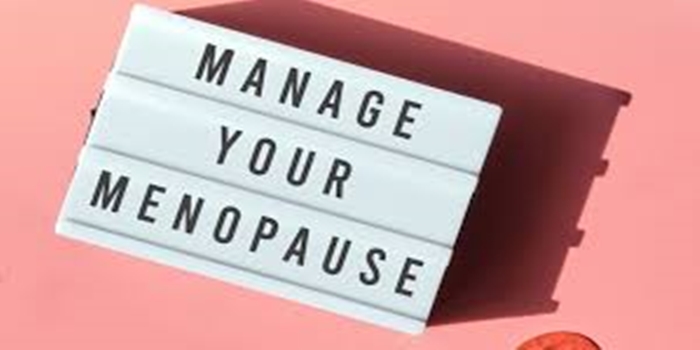In this article, we discussed the meaning of menopause, we also talked about how to manage the Symptoms, tips, and treatments.
Definition
Menopause is the time in a woman’s life when her periods (menstruation) stop. Most often, it is a natural, normal body change that occurs between ages 45 to 55. After menopause, a woman can no longer become pregnant.
Menopause is the end of your menstrual cycles. The term is sometimes used to describe the changes you go through just before or after you stop having your period, marking the end of your reproductive years. Menopause usually happens around age 50.
Menopause Symptoms
First signs of menopause
Uneven or missed periods
Vaginal dryness
Sore breasts
Needing to pee more often
Trouble sleeping
Emotional changes
Dry skin, eyes, or mouth
Fatigue
Depression
Crankiness
Headaches
Joint and muscle aches and pains
Weight gain
Hair loss
Changes in libido (sex drive)
ways to manage menopause symptoms:
Lifestyle changes: Eat a healthy diet, exercise regularly, and maintain a healthy weight. You can also try to get enough sleep, avoid smoking, and limit alcohol.
Relaxation techniques: Try yoga, tai chi, or meditation. You can also try taking slow, deep breaths when you feel a hot flash coming on.
Hormone replacement therapy: This can help with mild mood changes and other symptoms.
Vaginal treatments: Vaginal creams, tablets, pessaries, gels, or rings can help with vaginal dryness. You can also try water-soluble vaginal lubricants or over-the-counter vaginal moisturizers.
Pelvic floor exercises: Also known as Kegel exercises, these can help with bladder problems.
Support groups: You can join a support group with other women going through menopause.
Cognitive behavioral therapy (CBT): This type of talking therapy can help with low mood and anxiety.
Bioidentical hormone replacement therapy (BHRT): This uses lab-made hormones to increase estrogen and progesterone levels.
Antidepressants: A low-dose form of paroxetine (Brisdelle) is the only nonhormone treatment for hot flashes approved by the U.S. Food and Drug Administration.
You should talk to your doctor before taking herbal supplements or complementary medicines.
Here are some tips that may help with menopause symptoms:
Exercise
Regular physical activity can help with many conditions associated with aging, including heart disease, diabetes, and osteoporosis. Weight-bearing activities like walking, running, or dancing can be especially helpful.
Eat well
A healthy diet with plenty of fruits, vegetables, and whole grains can help. You can also try to eat more protein, and foods rich in calcium and vitamin D to help prevent bone loss.
Manage stress
Stress reduction techniques like meditation or mindfulness can help ease symptoms. You can also try cognitive behavioral therapy (CBT), which can help you develop coping skills.
Sleep well
Try to get seven to eight hours of sleep and keep a regular sleep routine. Wearing light, breathable bed clothes or sleeping naked can help with night sweats.
Dress in layers
Light, breathable clothing made from cotton can help you cool down more quickly during hot flashes.
Avoid triggers
Try to identify and avoid things that trigger hot flashes, like hot drinks, hot weather, spicy foods, and stressful situations.
Join a support group
Talking to other women who are going through menopause can be helpful.
Consider hormone therapy
Menopausal hormone therapy can help with mild mood changes, but all medicines have risks.
Talk to your doctor
You can talk to your doctor about menopausal hormone therapy, herbal supplements, or complementary medicines.
Treatments for menopause include:
Hormone replacement therapy (HRT)
A safe and effective treatment that replaces estrogen and progesterone, which are hormones that decrease during menopause. HRT can be taken as a pill, skin patch, gel, spray, or implant. If you have a uterus, you’ll also need to take progesterone to protect the lining of your womb.
Topical estrogen
A cream, ring, or tablet that can help with vaginal dryness and painful sex.
Lifestyle changes
These can include:
Wearing light clothing
Keeping your bedroom cool
Taking a cool shower
Avoiding smoking, caffeine, and alcohol
Exercising regularly
Losing weight if you’re overweight
Practicing mind-body therapies like meditation, deep breathing, and stress management techniques
You should consult with a healthcare professional to discuss the benefits and risks of all treatment options.
Conclusion
Menopause is a regular part of aging when it happens after the age of 40. But some women can go through menopause early. It can be the result of surgery, like if their ovaries are removed in a hysterectomy, or damage to their ovaries, such as from chemotherapy.


